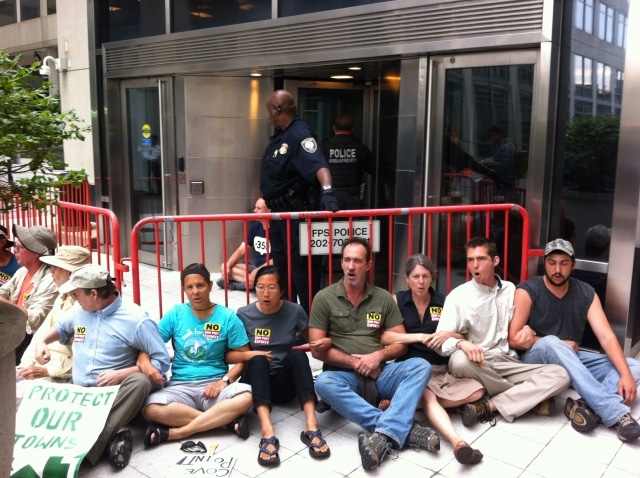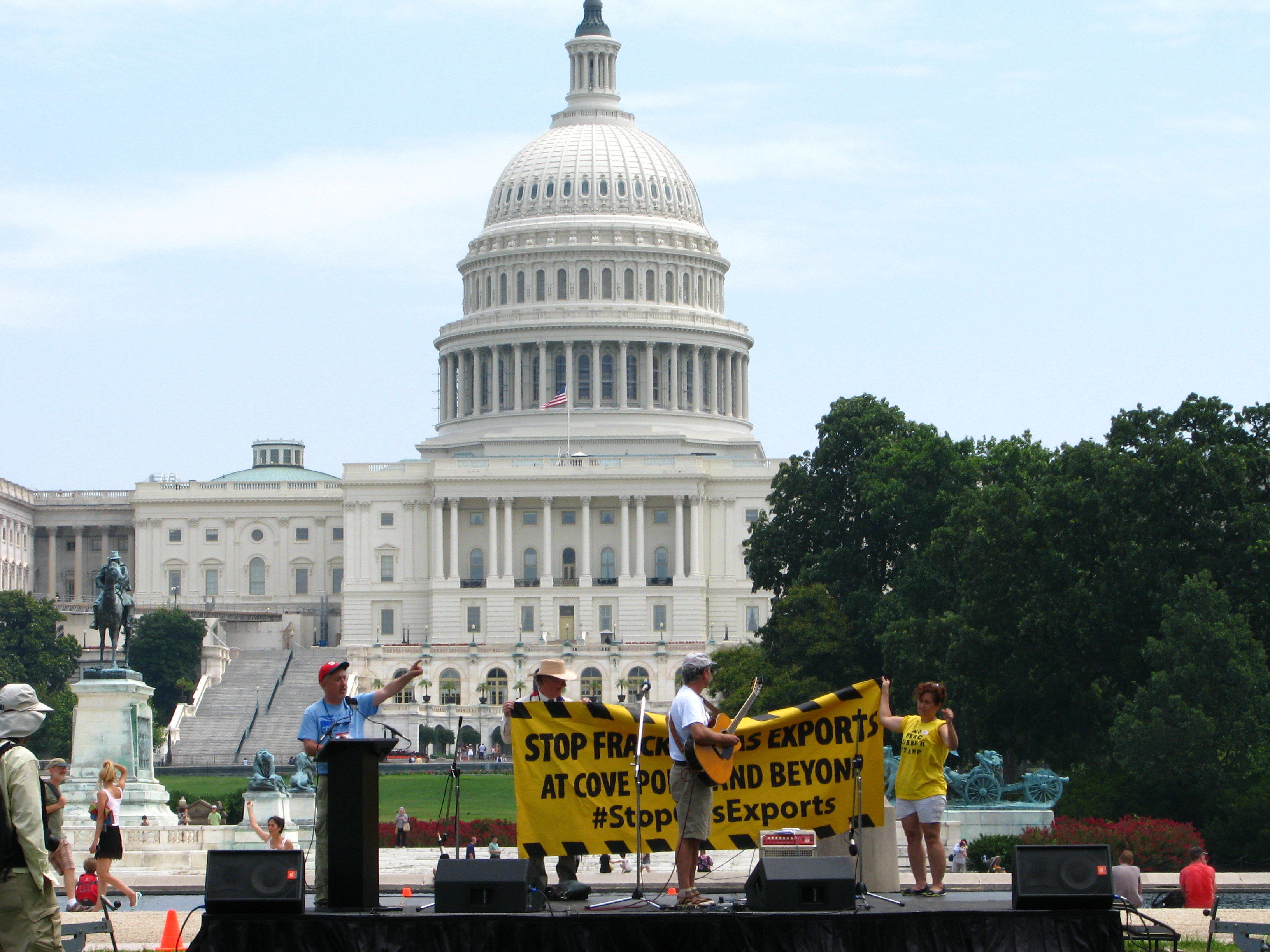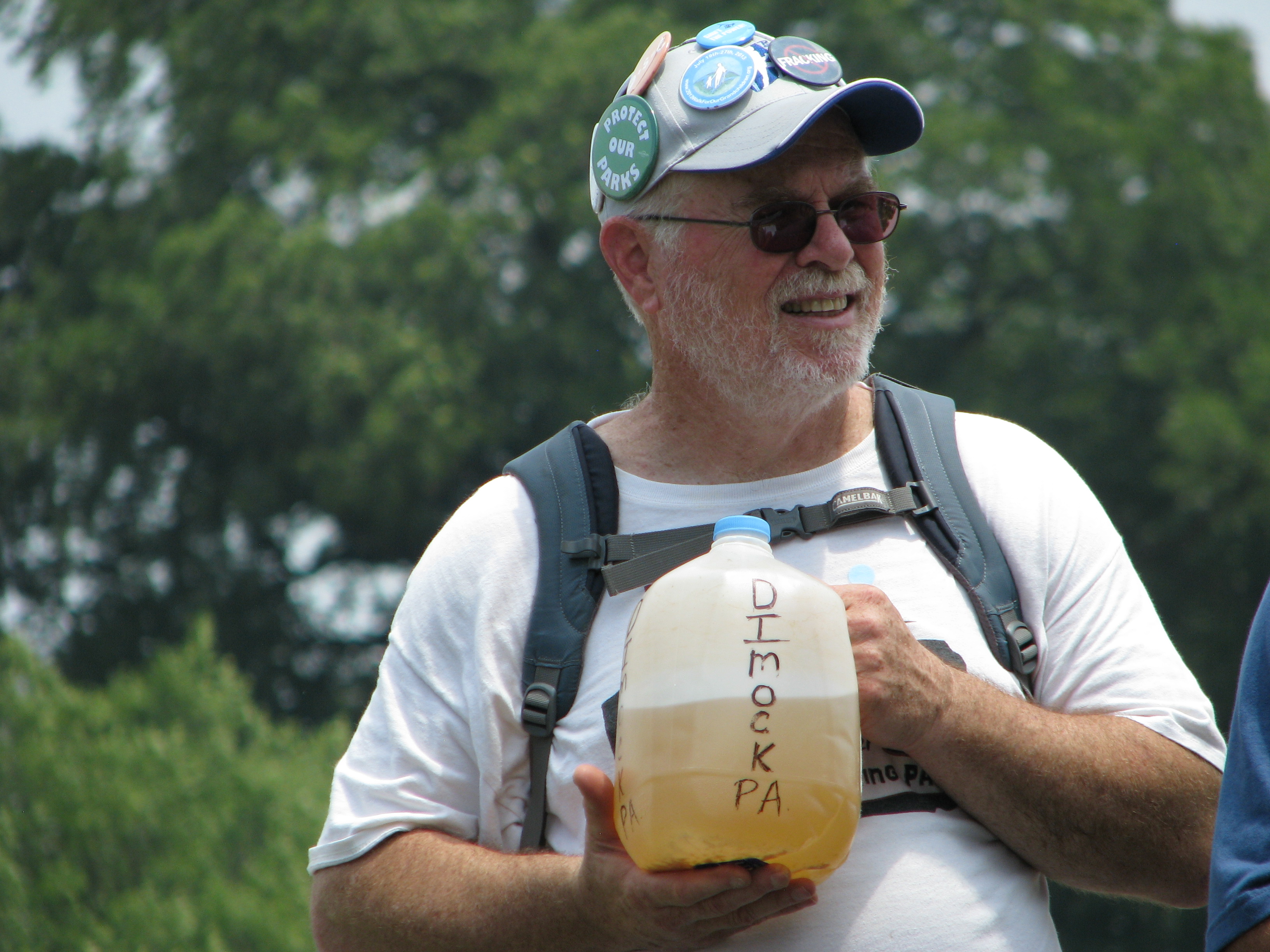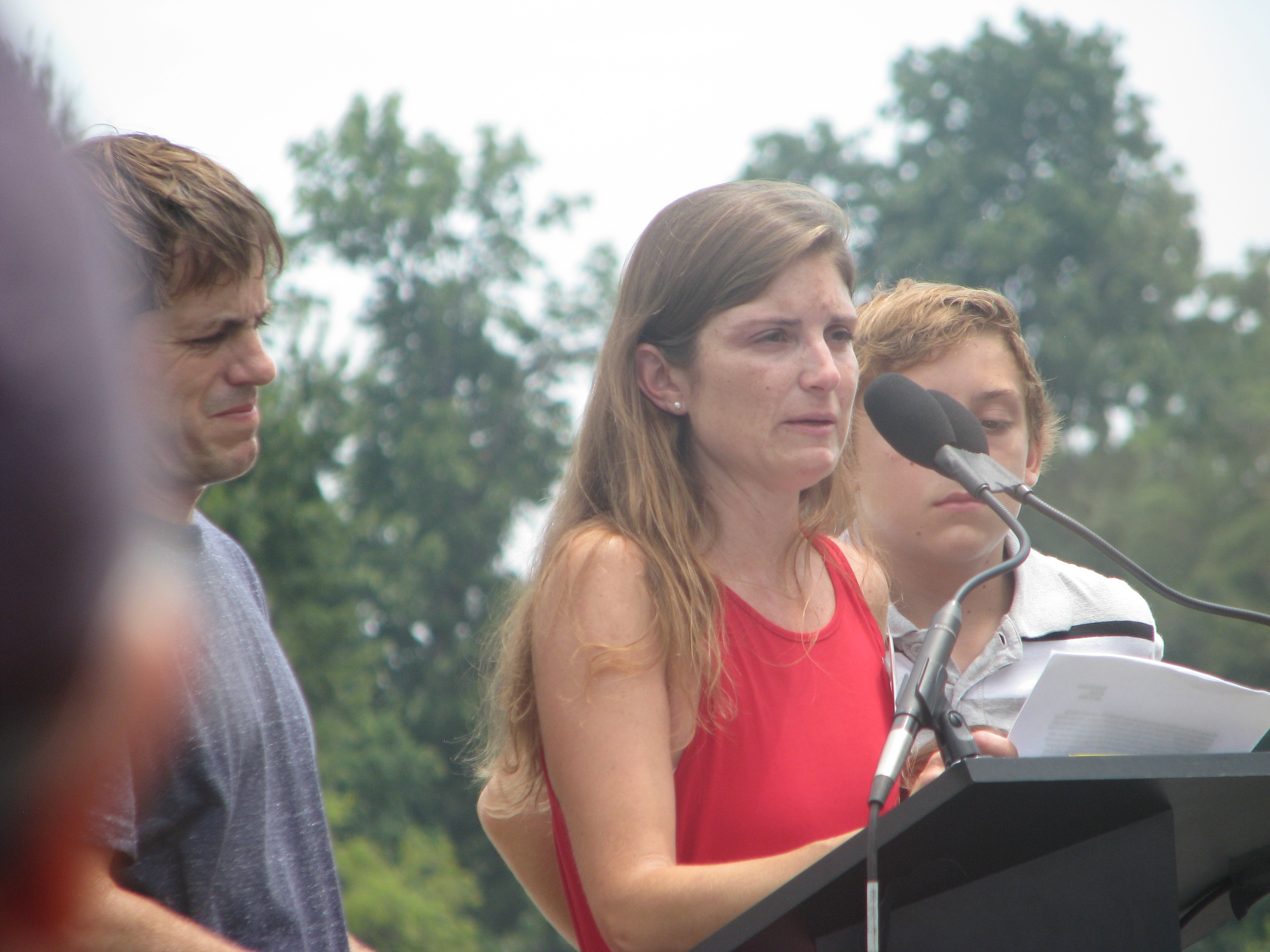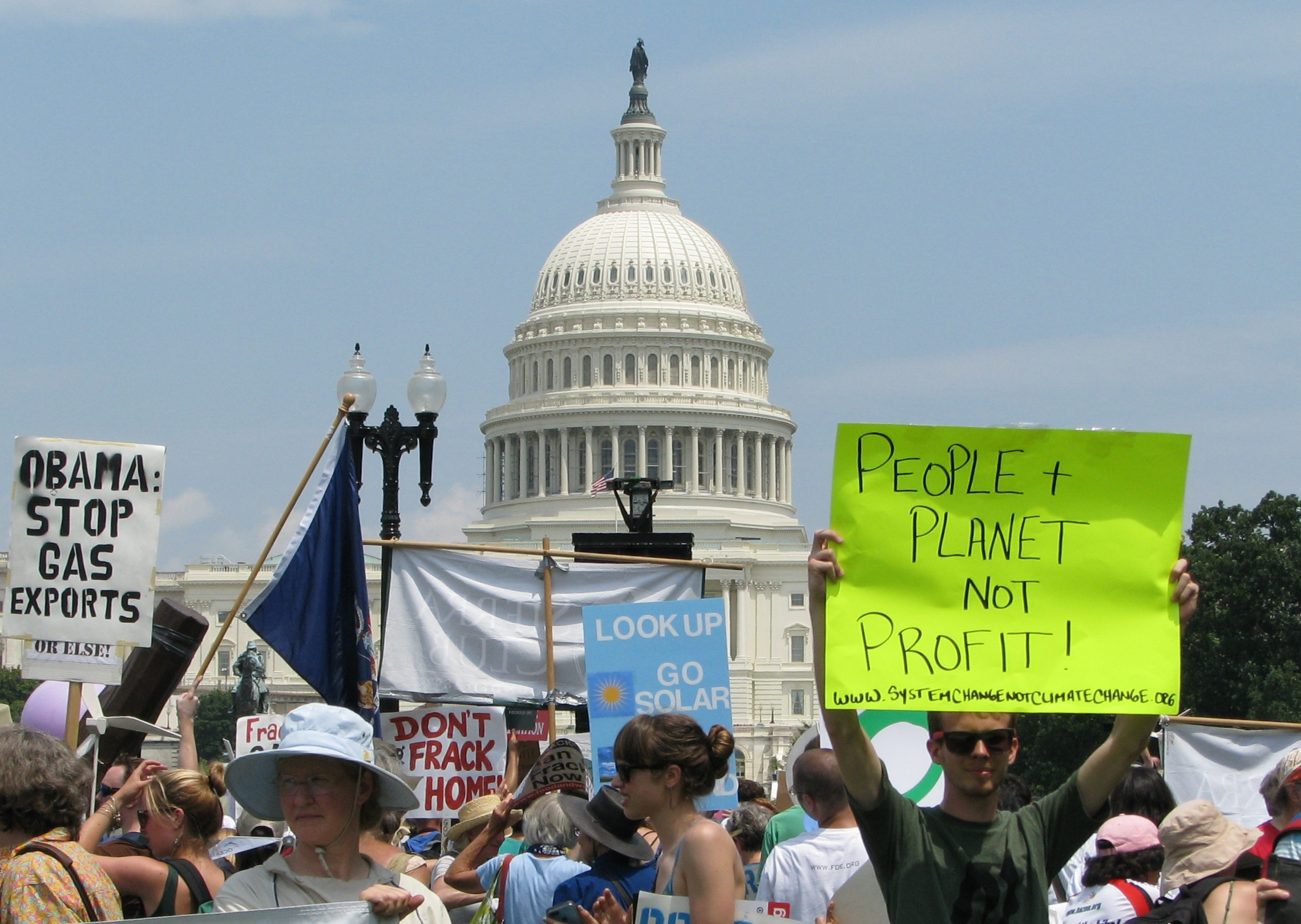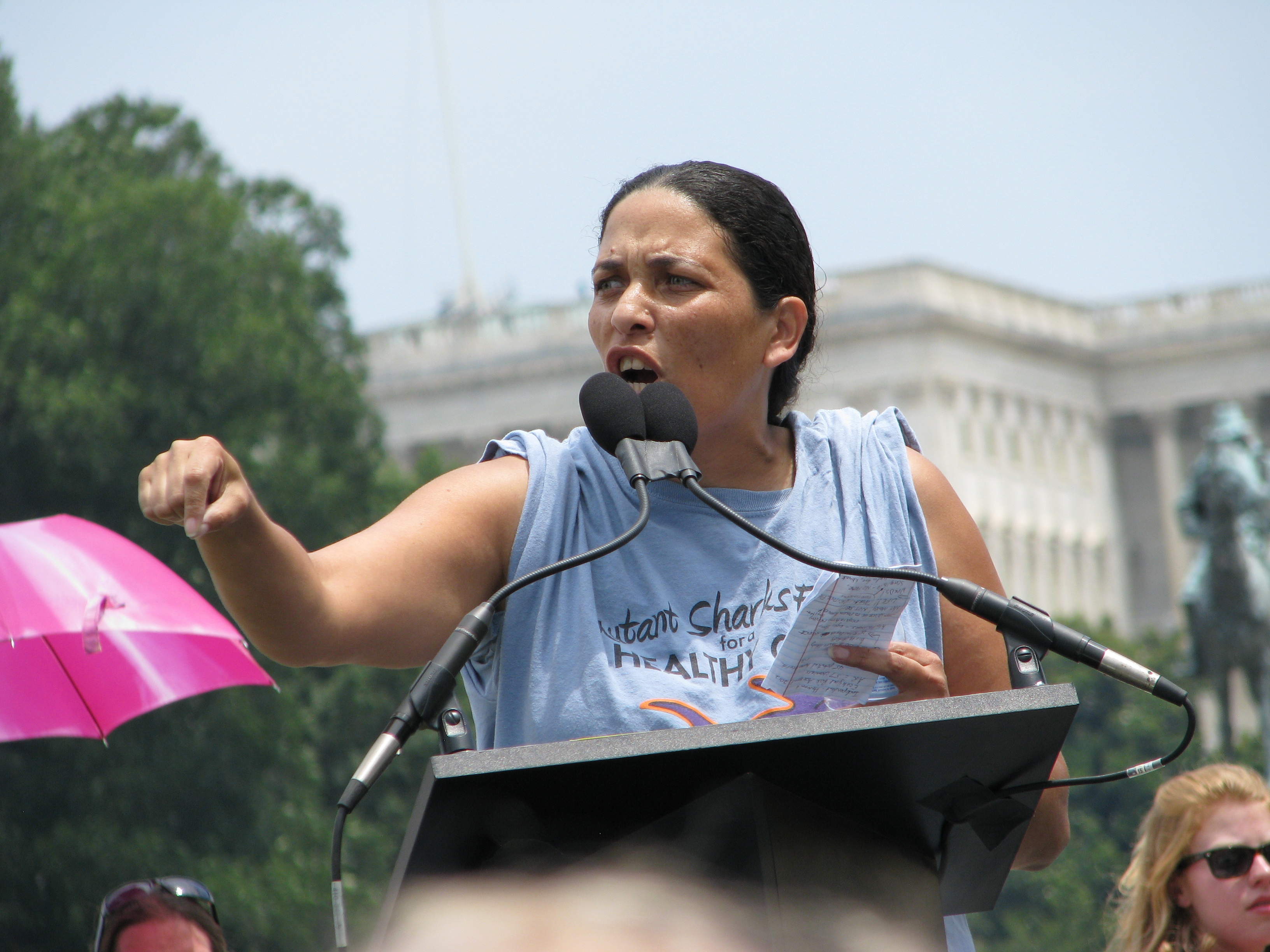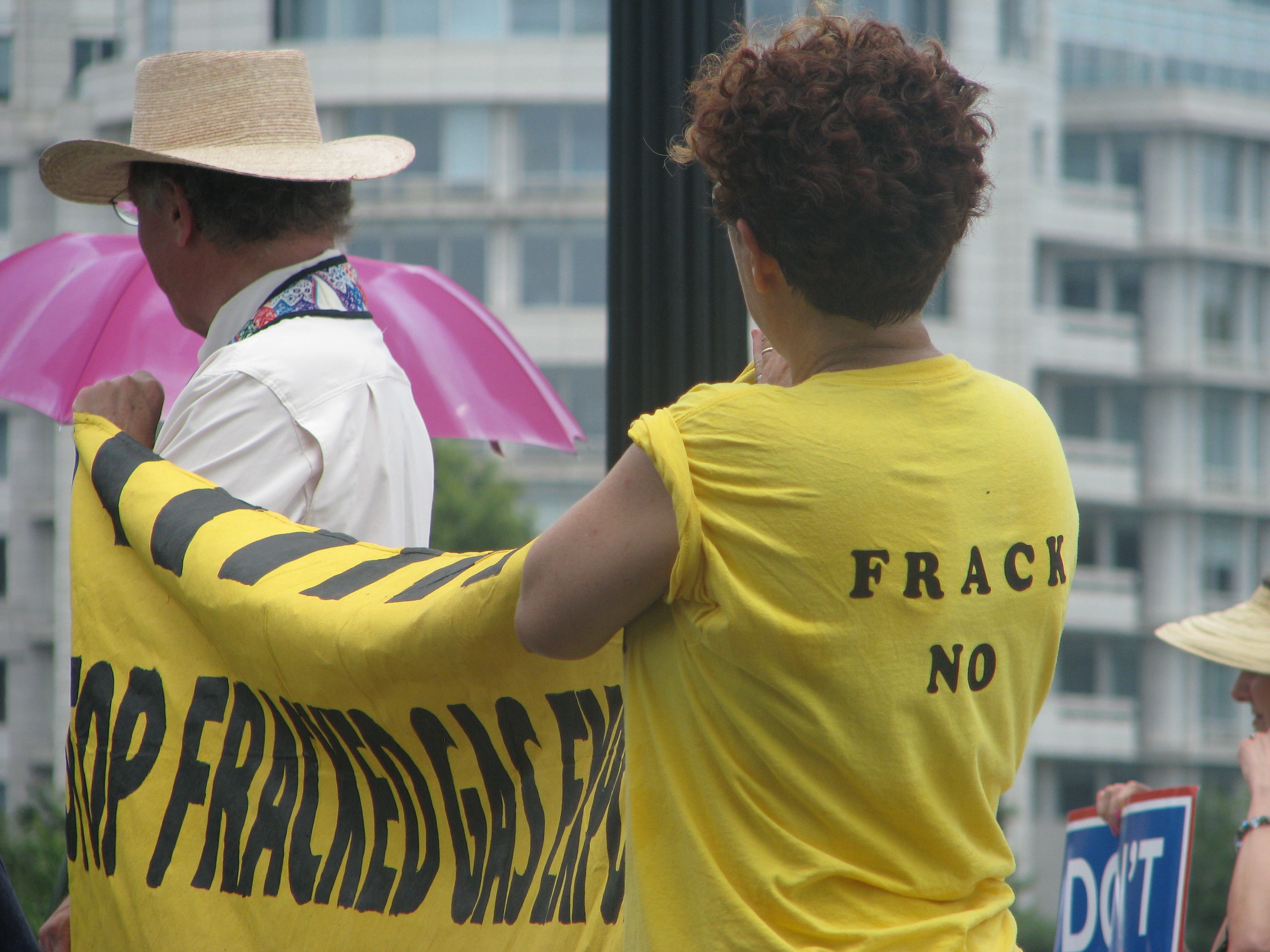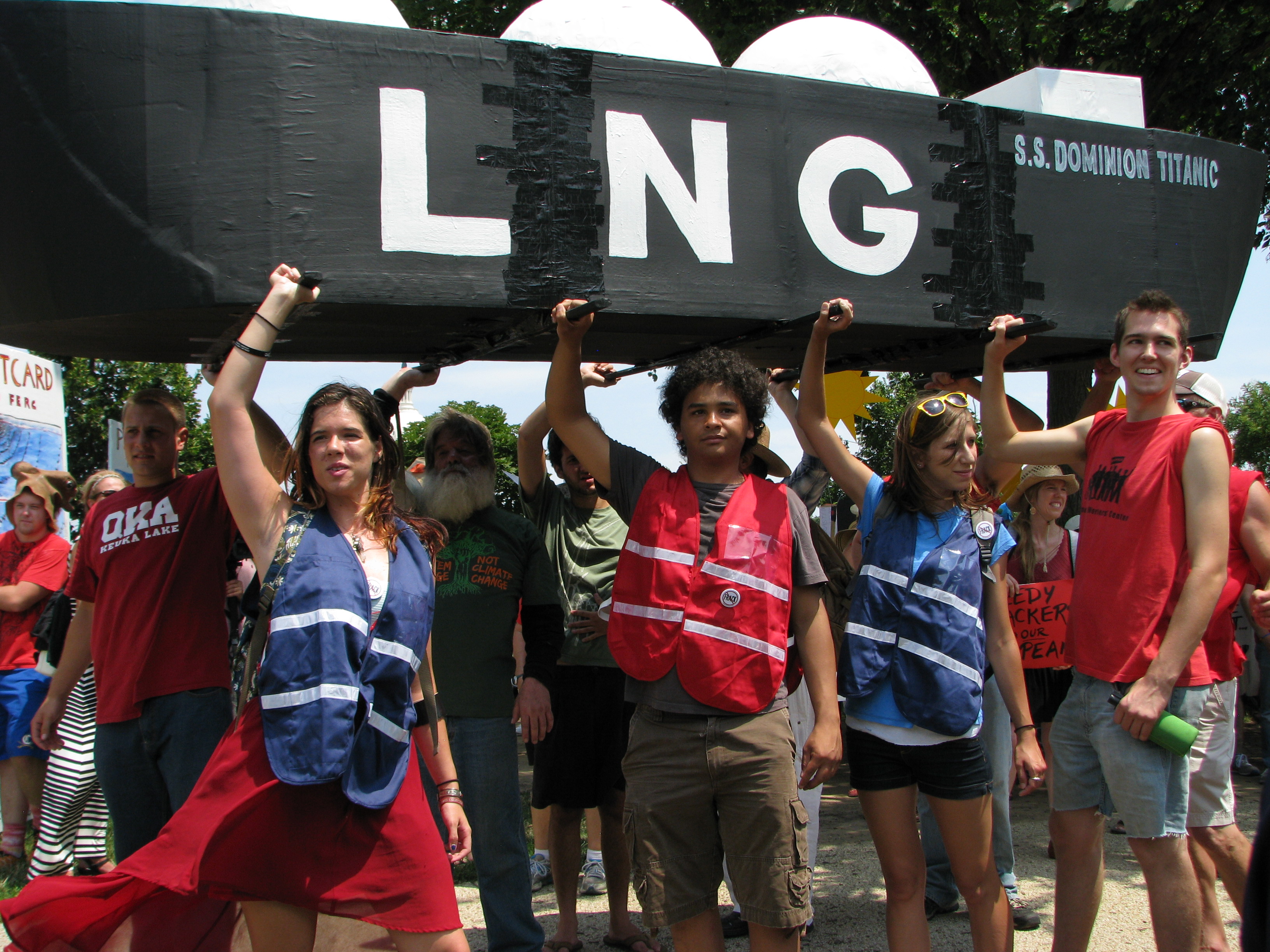Twenty-five anti-fracking and climate activists were arrested this morning in front of the Federal Energy Regulatory Commission (FERC) headquarters in Washington D.C.
The arrests took place during the second day of planned actions demanding that FERC and the Obama administration consider the impacts of natural gas extraction and transportation on communities.
“I think it’s great that FERC employees had an inconvenience getting to work today, because they inconvenience a lot people,” said Alex Lotorto, one of the arrestees. Lotorto, an activist from Pennsylvania, is working to stop a compressor station that would be part of the East Side Expansion Project proposed by the Columbia pipeline group.
FERC employees are removed from the frontline impacts, he said, so protestors brought the impacts to FERC’s front doors. When employees can’t get through the door, “they have to see the faces of the people they’re affecting,” he said. “That makes me feel better, because they have to deal with a little bit of what we’re dealing with every day.”
The arrests followed a rally and march on Sunday, July 13, where over one thousand anti-fracking and climate activists gathered for what “Stop Fracked Gas Exports” organizers are describing as the first ever “people’s march” on the Federal Energy Regulatory Commission (FERC) to stop the exportation of liquefied natural gas (LNG).
Woman being handcuffed following arrest by Washington, DC police at the FERC blockade July 14. Photo credit: Spencer Johnson.
Mike Tidwell, executive director of the Chesapeake Climate Action Network, begins the July 13 “Stop Fracked Gas Exports” rally in front of the U.S. Capitol. Photo credit: Caroline Selle.
Michael Bagdes-Canning holds polluted tap water from Dimock, Pennsylvania. Photo credit: Caroline Selle.
The march began with a rally near the U.S. Capitol, during which speakers traced the path of liquefied natural gas (LNG) from points of extraction in the Marcellus Shale to Dominion Resources’ planned export terminal at Cove Point. The speeches focused on the frontline impacts, including dirty drinking water, nosebleeds, and headaches in the fracking fields, fear of explosions along pipeline routes and compressor station sites, and industry intimidation — or disregard — at the point of export.
“No one from Dominion said anything to us,” said Rachel Heinhorst, a mother of three who describes her property as “directly across” from the proposed $3.8 billion Lusby, Maryland export facility. “We feel like they don’t care.”
Rachel Heinhorst, standing with her husband and two of her three children, tears up during a speech about the Dominion Resources Cove Point project’s effects on her family. Photo credit: Caroline Selle.
Heinhorst’s home is one of hundreds in the two-mile evacuation zone for fire and explosion catastrophes at the Cove Point terminal. Should Cove Point be built, and should she and her family decide to move, she worries that property values will be so devalued she won’t be able to sell her house.
Activists display signs during the July 13 rally at the U.S. capitol. Photo credit: Caroline Selle.
FERC’s decision on Cove Point, the first proposed LNG export terminal on the East Coast, is expected as early as this August. The agency has already approved two of 14 LNG export terminal applications from the natural gas industry.
Cherri Foytlin, a climate justice advocate in South Louisiana, describes sites in the path of liquefied natural gas transport as “sacrifice zones.”
Cherri Foytlin speaks at the July 13 rally. Photo credit: Caroline Selle.
In her speech, Foytlin detailed the opposition she faces for speaking out against fossil fuel industries in Louisiana, including threats of violence. But, she said, “Our families, our ecosystems…have been the lamb at the altar of these ruthless industries for far too long.”
Some members of the crowd were drawn to the protest by aspects of natural gas extraction and transportation typically less focused on by the media. Ann Marie Nau, an activist from Myersville, Maryland, is trying to stop a compressor station in her hometown as well.
Compressor stations help ensure that the natural gas is appropriately pressurized during transport, and more will be needed as LNG pipeline networks expand.
After the rally, participants marched through the city to FERC’s Washington, D.C. headquarters. Many carried signs decrying fracking’s effects on drinking water, natural gas extraction’s methane emissions, and the industry’s general callousness towards the environment.
Ann Marie Nau, an activist from Myersville, Maryland, holds up a banner on stage during the July 13 rally. Nau is a member of Myersville Citizens for a Rural Community, a group formed in response to a proposal by Dominion Transmission Inc. to build a LNG compressor station in their small town. Photo credit: Caroline Selle.
One puppet, dressed up to look like a businessman and wearing a “Gas” button on his shirt, meandered through the crowd.
“Stop Cove Point,” read the side of a mock steamship, propped up on the shoulders of several young people. Its name was visible in small white letters, “S.S. Dominion Titanic.”
Activists lift the S.S. Dominion Titanic during the July 13 march. Photo credit: Caroline Selle.
A woman dressed as the Statue of Liberty is arrested during the July 14 blockade in front of FERC’s national headquarters. Photo credit: Collin Rees.
Subscribe to our newsletter
Stay up to date with DeSmog news and alerts


